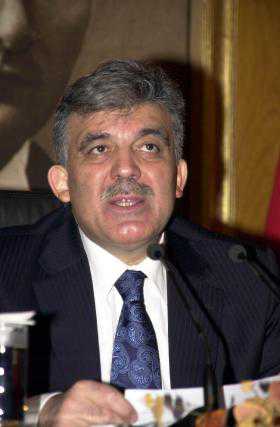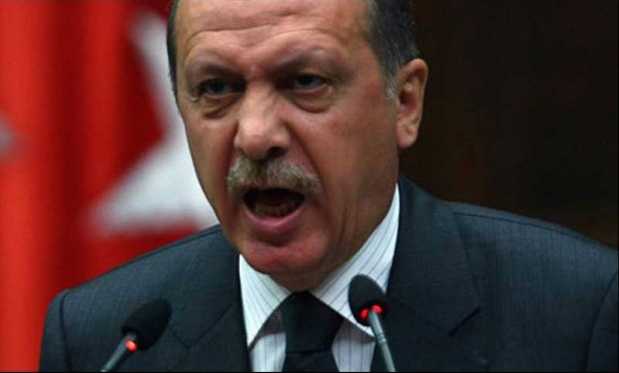Eric Margolis
Veteran journalist and Author
Posted: September 15, 2009 03:28 PM
Read More: Ataturk, Ergenekon, European Union, Istanbul, Istanbul-Floods, Turkey, Turkey Floods, Turkey Trial, Turkish Muslisms, World News
The name “Ergenekon” may not be familiar to non-Turks, but this murky political affaire has riveted Turkey’s 70 million people.
Thirty-three members of a neo-fascist group called Ergenekon have been on trial, accused of murder, terrorism, and trying to overthrow the elected government. The trial was temporarily suspended after the courthouse was flooded out during torrential rains that inundated Istanbul last week, leaving 31 dead.
This fascinating trial has been exposing the workings of the `deep state,’ a powerful cabal of retired and active military officers, security forces, gangsters, government officials, judges, and business oligarchs that has long been the real power in this complex nation.
Turkey’s military vigorously denies any links to the Ergenekon.
The `deep state’ advocates extreme Turkish nationalism and revived Pan-Turkism, or Turanism, the unification of all Turkic peoples from Turkey to the Great Wall of China.
Its extreme right-wing members are bitterly anti-Islamic, and violently oppose any admission of guilt for the mass killing during World War I of many of the Ottoman Empire’s Armenians. Most Turks insist the killings occurred in the chaos of war and insurrection. Armenians call it the 20th century’s first genocide.
Turkey’s hard right also opposes improving relations with neighbors Armenia and Greece, or making any more concessions to Turkey’s sizable Kurdish minority.
Ergenekon’s plotters stand accused of plans to assassinate officials of PM Recep Tayyip Erdogan’s ruling Justice and Development Part(AKP), a democratic, modernizing movement advocating Islamic principles of fairer wealth distribution and social welfare.
While AKP is a moderate, centrist party, Turkey’s secularists, without any serious evidence, claim it is the spearhead of a radical Islamic movement. The real issue is as much about the secularist’s right to protect their long-enjoyed economic and social privileges as it is about religion.
The plotters reportedly hired hit men to kill leading liberal intellectuals, including acclaimed writer, Orhan Pamuk, and may have murdered a prominent Armenian-Turkish journalist and three Christians. They also oppose Turkey’s entry into the EU as a threat to `Turkishness.’
What makes this case particularly interesting is that Ergenekon may well be linked to Gladio, a secret, far right underground group created in the 1950s by the US and NATO during the Cold War as a `stay behind’ guerrillas to resist Soviet invasion or Communist takeovers. Gladio had a network of agents and caches of arms across Europe with secret links to NATO intelligence services.
Gladio staged numerous bombing attacks and assassinations during the 1970s and ’80s in a effort to promote far right coups in Italy, Belgium, and Turkey, where it remains active.
A cell was even recently uncovered in Switzerland.
In Italy, Gladio members played a key role in the P2 Masonic Lodge’s plot to overthrow the government. The Vatican’s Banco Ambrosiano, its head, Roberto Calvi, and Italian military intelligence, were also involved this intrigue.
The Ergenekon plot is one facet of the intense struggle between Erdogan’s Islamist-lite reformists and Turkey’s 510,000-man armed forces which sees itself as defender of the anti-religious, westernized secular state created in the 1930’s by Ataturk, founder of modern Turkey.
Turkey’s generals are closely allied to the deeply entrenched secularist oligarchy of business barons, judges, university rectors, media groups, and the security services that has made Ataturk’s memory and anti-religious values into a state philosophy.
Turkey’s right-wing generals have overthrown three governments and ousted a fourth. The Turkish military establishment is traditionally close to the US and Israel, with whom it’s had extensive military, arms and intelligence dealings.
Until PM Erdogan’s election, the military was Turkey’s real government behind a thin façade of squabbling elected politicians, a fact lost on western observers who used to urge Turkey’s “democratic” political model on the Muslim world.
An intensifying struggle is under way between the two camps. On the surface, it’s “secularism versus Islamic government.” But that’s just shorthand for the fierce rivalry between the military-industrial-security complex and Erdogan’s supporters, many of whom are recent immigrants to the big cities from rural areas, where Islam remains vital in spite of eight decades of government efforts to stamp it out or tightly control it.
Right-wing forces recently got allies in the Appeals Court to lay spurious corruption charges against Turkey’s respected President, Abdullah Gul. The Erdogan government struck back by levying a US $2.5 billion tax fine on the powerful Dogan media conglomerate that has been a fierce critic and enemy of the prime minister. Both foolish acts injure Turkey’s image as a modern democracy.
Erdogan has been Turkey’s best, most popular prime minister. He has enacted important political, social, legal and economic reforms, and has drawn Turks closer to Europe’s laws and values. He stabilized Turkey’s formerly wild finances and brought a spirit of real democracy to Turkey. The EU keeps warning Turkey’s growling generals to keep out of politics.
After 50 years of trying, Turkey still can’t get into the European Union. Europe clearly wants an obedient Turkey to protect its eastern flank and fend off more troublesome Muslims, but not an equal partner and certainly not a new member, even though Turkey is as qualified for the EU as Bulgaria or Romania.
Germany’s Chancellor Angela Merkel and France’s Nicholas Sarkozy, both leaders of Europe’s anti-Muslim right, keep saying no to the Turks. The EU wants no more farmers – and productive, lower cost ones at that – and no more Muslims.







